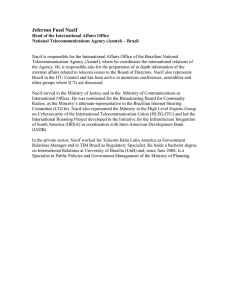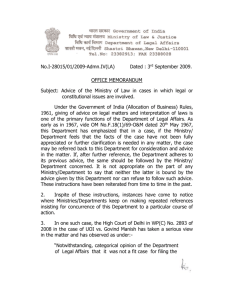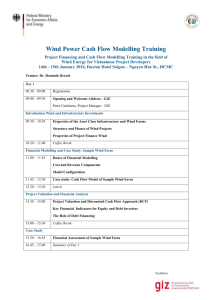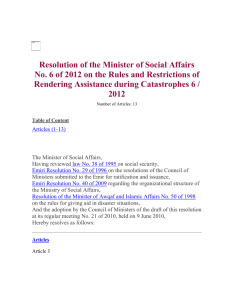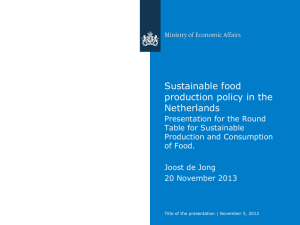Delegated Cooperation - 6 pillar assessment
advertisement
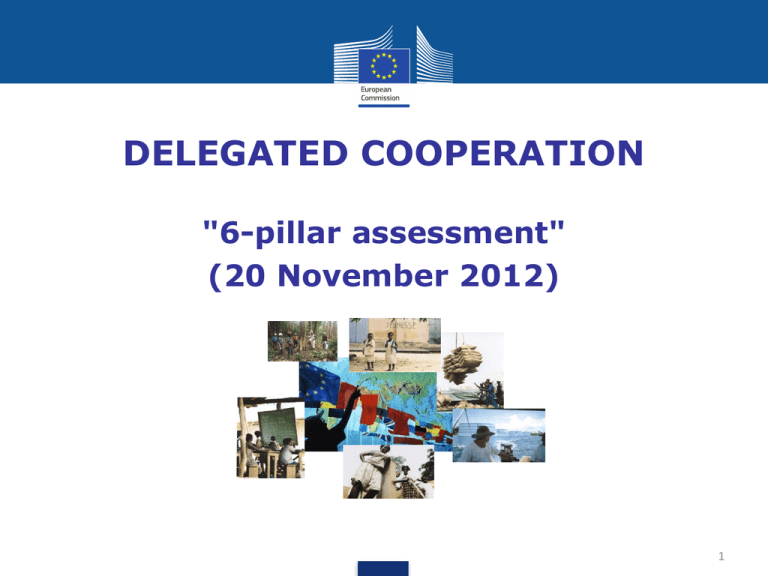
DELEGATED COOPERATION "6-pillar assessment" (20 November 2012) 1 Acronym ADA ADETEF AECID AFD AusAID BC BTC CTB DANIDA DBSA DEG GIZ DFID FEI FI MoFA FIIAPP IPAD IT MoFA KfW Lux-Dev NL MoFA SIDA SIMEST SONA/USONA Name of the Organization Austrian Development Agency Assistance au Développement des Échanges des Technologies Économiques et Financières Agencia Espanola de Cooperation Internacional al Desarrollo Agence Française de Dévelopement Australian Development Agency British Council Cooperation Technique Belge Danish Ministry of Foreign Affairs Development Bank of Southern Africa Deutsche Investitions- und Entwicklungsgesellschaft mbH Deutsche Gesellschaft für Internationale Zusammenarbeit (GIZ) GmbH UK Department for International Development France Expertise International Ministry of Foreign Affairs of Finland Fundacion Internationaly para Iberoamerica de Administraciony Politicas Publicas Instituto Portugues de Apoio ao Desenvolvimento Ministry of Foreign Affairs of ITALY Kreditanstalt fur Wiederaufbau Lux-Development SA NL Ministry of Foreign Affairs Swedish International Development Cooperation Agency Societa Italiana per le Imprese al'Estero Stichting Ontwikkeling Nederlandse Antillen Main steps of the 6-pillar assessment 1. Preliminary stage: request, management decision, initial screening 2. Assessment Process: external audit company, opening meeting, fieldwork (around 2 weeks), closing meeting (on main findings) 3. Assessment Report: report with recommendations subject to contradictory procedure, finalisation depending on the findings & recommendations Process = 8 to 9 months BUT: depending on the importance of the issues addressed & the time to implement the recommendations Main difficulties 1. Major changes in the organisational structure or the internal procedures (procurement) => delays / impossibility to confirm compliance with standards 2. MAJOR CONCERN: cascading delegations (implementing partners) – specific risks (dilution of responsibility / cost) – delegation accepted under condition (assessment / controls) – common issue in entities using implementing partners (insufficient levels of control / difficulties for recovery unduly spent funds) Legislation forbids delegation of tasks involving exercise of public authority to private law entities (other than those with a public service mission) New Financial Regulation 1. Change in management modes: indirect centralised (national body) + decentralised (beneficiary country) + joint (international organisation) = one category called INDIRECT management 2. Harmonization of pillars: 4 pillars (audit; internal control; accounting; procurement) instead of the current 6 3. Clarification of standards to be used: audit; internal control; accounting = international standards procurement = principles of the Financial Regulation No major changes are expected for Member States bodies
